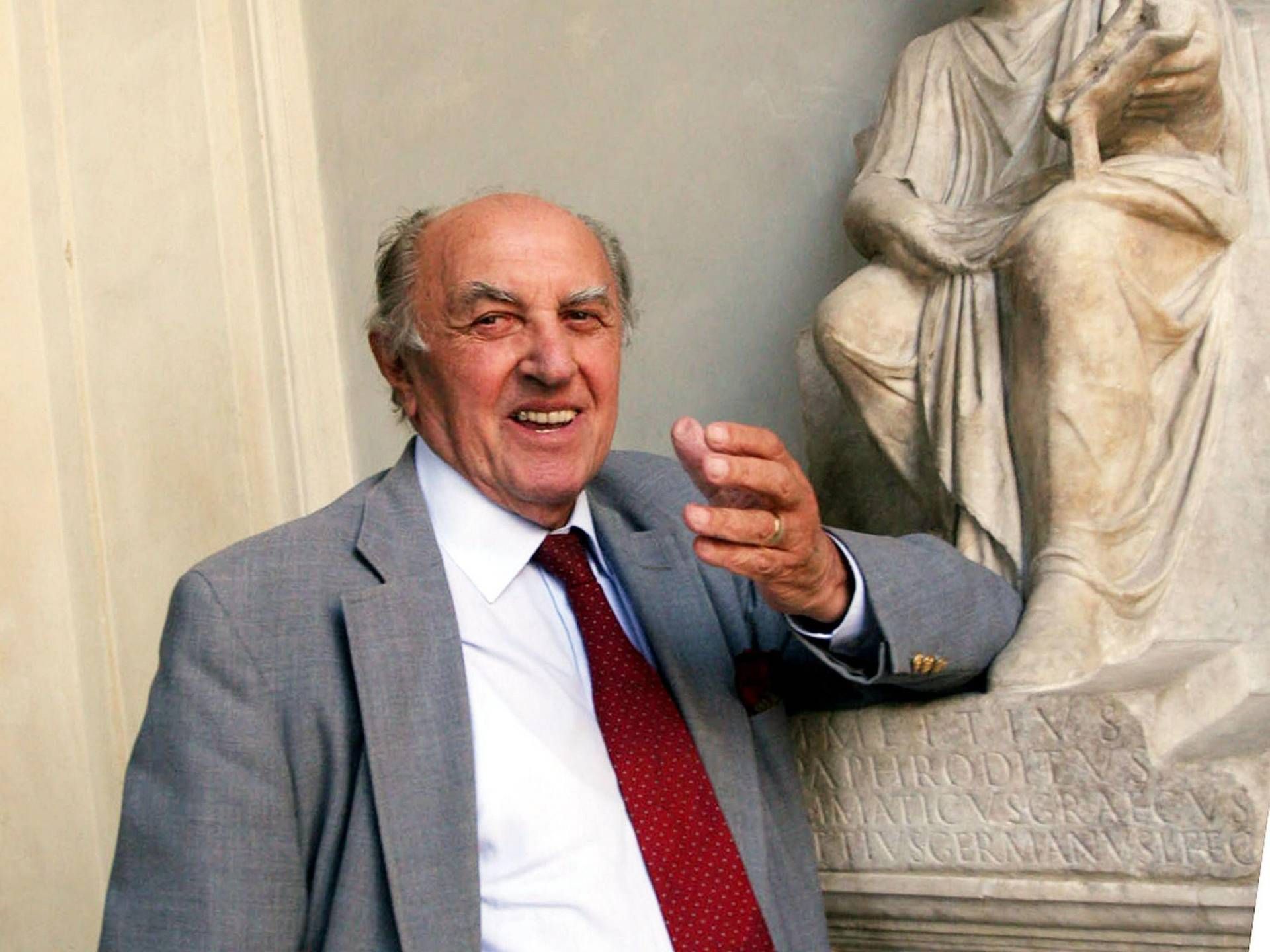The sociologist Franco Ferrarotti, considered the father of Italian sociology and its dean, died at the age of 98 today in Rome. The news of his disappearance was confirmed to Adnkronos by his collaborators. He was a master of social research, represented a scientific figure with an international profile and contributed decisively to the establishment of sociology in Italian scientific institutions.
Father and dean of Italian sociology
Born in Palazzolo Vercellese on 7 April 1926, he graduated in philosophy from the University of Turin in 1949 with a thesis on “The sociology of Thorstein Veblen”, an author who he then translated for Einaudi at the invitation of Cesare Pavese. Emeritus professor of sociology at the “La Sapienza” University of Rome, where he spent his entire academic career, in 1961 Ferrarotti obtained the chair of sociology after winning the first competition announced in Italy for this discipline. In 1962 he contributed to the creation of the Faculty of Sociology at the University of Trento, where he later had his second chair of sociology.
Between the 1950s and 1960s, Ferrarotti conducted a series of pioneering research on trade unionism, social movements, the transformation of work, local communities and urban sociology. He was particularly interested in the foundations of legitimation of power in a changing society such as the modern one and studied the problem of the aims and underlying cultural orientation of industrial society.
Ferrarotti was the founder, together with the philosopher Nicola Abbagnano, of the “Quaderni di sociologia” in 1951, of which he was director until 1967, the year in which he created the magazine “La Critica Sociologica”, of which he has been the director ever since. . He was one of the founders, in Geneva, of the Council of European Municipalities, responsible for the division of OECD research projects in Paris. Appointed director of studies at the Maison des Sciences de l’Homme in Paris in 1978, he was awarded the Lifetime Achievement Award by the Accademia Nazionale dei Lincei in 2001 and the title of Knight Grand Cross of Merit of the Republic by the then president Carlo Azeglio Ciampi in 2005. He was a member of the New York Academy of Sciences and honorary president of the National Association of Sociologists.
Ferrarotti has taught at the universities of Chicago, Boston, New York, Toronto, Moscow, Warsaw, Cologne, Tokyo and Jerusalem. Generations of students remember Ferrarotti’s exciting lectures at the Roman university. His interventions on the various political and social issues of the country from the 1960s until today are provocative. Ferrarotti’s research and study activity is contained in an enormous amount of writings which he continued to publish well into his 90s. Between 2019 and 2020, the publisher Marietti published Ferrarotti’s Opera omnia consisting of six volumes for a total of 5 thousand pages.
Before starting his academic career, Ferrarotti was the closest collaborator of the entrepreneur Adriano Olivetti (from 1948 to 1960), developing the political and social project of Comunità on his behalf. He was an independent deputy in Parliament during the third legislature (1959-63), representing the Community Movement founded by Olivetti, which he took over after his resignation from the Chamber. On this important collaboration he published “An entrepreneur of ideas. A testimony on Adriano Olivetti” (Edizioni di Comunità, 2001) while on the parliamentary experience “In the smoky rooms. The political season of a ‘maverick’” (Guerini Studio, 2006).
The works
Among Ferrarotti’s main works are: “Unions and power” (Edizioni di Comunità, 1954); “The workers’ protest” (Edizioni di Comunità, 1955); “Sociology as participation” (Taylor, 1961); “Max Weber and the destiny of reason” (Laterza, 1965); “Treatise of sociology” (Utet, 1968); “Rome from capital to suburbs” (Laterza, 1970); “The sociology of power” (Laterza, 1972); “Lives of slum dwellers. Contribution to the sociology of marginality” (Liguori, 1974); “Students, school, system” (Liguori, 1976); “Youth and drugs” (Liguori, 1977); “At the roots of violence” (Rizzoli, 1979); “Society as a problem and as a project” (Mondadori, 1979); “History and life stories” (Laterza, 1981); “The paradox of the sacred” (Laterza, 1983); “Quality in sociology” (Laterza, 1988).
His non-fiction production continued in the following years: “L’Italia in bilico” (Laterza, 1990); “Rome mother stepmother” (Laterza, 1991); “Skyscrapers have no leaves” (Laterza, 1991); “Mass media and mass society” (Laterza, 1992); “The temptation to forget: racism, anti-Semitism and neo-Nazism” (Laterza, 1993); “Homo sentiens: young people and music” (Liguori, 1995); “Rock, rap and the immortality of the soul” (Liguori, 1996); “Italy between history and memory” (Donzelli, 1997); “The truth? It is elsewhere” (Donzelli, 1999); “Power” (Newton Compton, 2004); “Television” (Newton Compton, 2005); “America today. Capitalism and society in the United States” (Newton Compton, 2006); “Life and death of a ruling class” (Edup, 2007); “Dialogical identity” (Ets, 2007); “Bottle bottoms” (Solfanelli, 2008); “The sense of place” (Armando, 2009). In 2010 he returned to reflect on the role of sociology in the volume “Why sociology?” (Mondadori Education), interviewed by Umberto Melotti and Luigi Solivetti, while in 2012 he published the autobiographical text “Atman. The breath of the woods” (Empiria) and the essay “A population of frenetic, highly informed idiots” (Solfanelli), which he followed by “Desecrating religion. Consciousness and utopia in the era of crisis” (Solfanelli, 2013). His most recent volume is “From the enmeshed society to the new humanism” (Armando, 2020).
In the course of his research activity, Ferrarotti has analyzed the type and quality of rationality that governs technically oriented and post-traditional societies, posing the problem of the limits of formal, purely technical rationality, and that of the transition from technical-formal rationality to substantial rationality. In this perspective he critically took up the lesson of Marxism, purified of mechanisms but also of “dialectical impatiences”, at the same time analyzing the problem of the aims and underlying cultural orientation of industrial society. Lastly, he was particularly interested in the analysis and understanding of the rational-irrational polarity, “outside of any romantic catastrophism but also of any easy Enlightenment faith”, by his own admission. (Of Paolo Martini)
